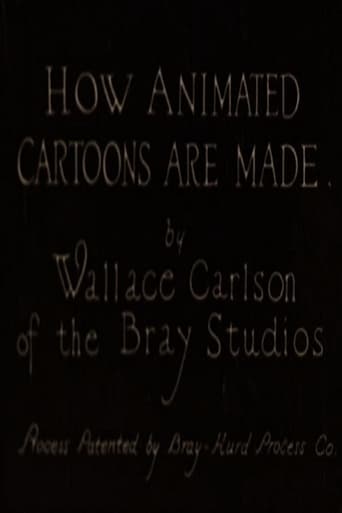MartinHafer
This is an unusual animated film that supposedly shows a behind the scenes look at how animated cartoons are made. Much of it is realistic...some of it is not. The biggest misconception the film might give the viewer is that it's basically a one-man operation--with one guy doing everything except giving the final approval to the script and finished cartoon. Still, it's very interesting and gives much insight into the tedious process of animated an early cartoon. Interestingly, it was made before clear cels were used and the animation was much more difficult and time consuming. The film is both live action as well as containing some animated sequences. Well worth seeing--particularly if you are a fan of early animation.
boblipton
John Randolph Bray ran the first American cartoon factory from 1913 through the 1920s. In its time, just about every major artist int he field except Walt Disney's Kansas City crew worked for him. So it's interesting to see this early technical promotion film in which Wallace Carlson shows us how he goes about making one of his "Dreamy Dud" cartoons.It's an abbreviated version of the process. This would have us think that Mr. Carlson did everything by himself except for carrying the thousands of in-between sheets to the camera; for that, he had a small girl in a smock to help him. Actually, Bray's success was predicated on his assembly-line methods. After he left the animation field, he lived very well on the patents that Earl Hurd and he had assembled.This is not, as some have remarked, the first movie to show the technical process of cartoon making. About half of Winsor McKay's LITTLE NEMO in 1911 consists of gags on the subject. Nonetheless, as an indicator of the process and for a chance to see Mr. Carlson and his boss, it's tremendously interesting.
